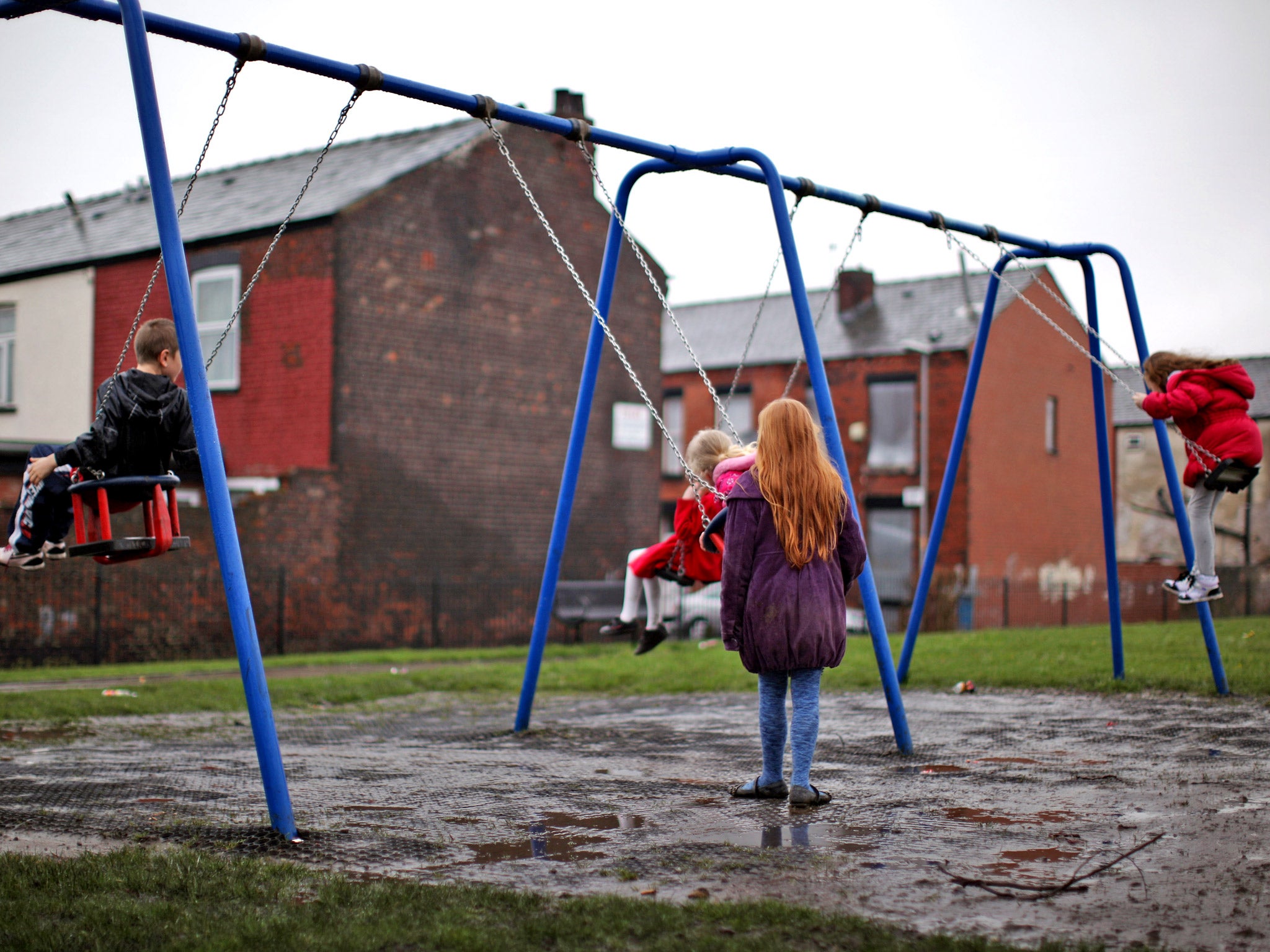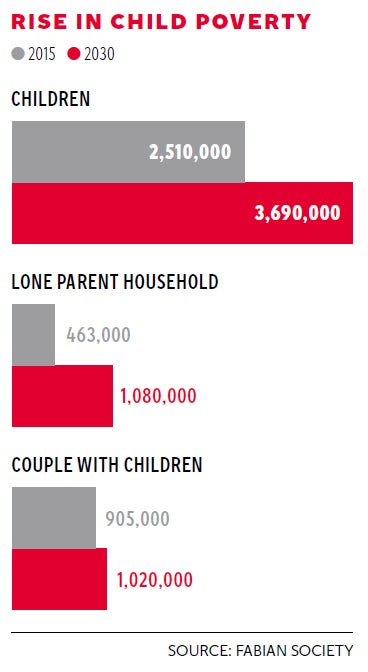Over a million more UK children set to live in poverty by 2030, report claims
Labour-affiliated Fabian Society forecasts that 3.69m children will be living in poverty in 15 years

Your support helps us to tell the story
From reproductive rights to climate change to Big Tech, The Independent is on the ground when the story is developing. Whether it's investigating the financials of Elon Musk's pro-Trump PAC or producing our latest documentary, 'The A Word', which shines a light on the American women fighting for reproductive rights, we know how important it is to parse out the facts from the messaging.
At such a critical moment in US history, we need reporters on the ground. Your donation allows us to keep sending journalists to speak to both sides of the story.
The Independent is trusted by Americans across the entire political spectrum. And unlike many other quality news outlets, we choose not to lock Americans out of our reporting and analysis with paywalls. We believe quality journalism should be available to everyone, paid for by those who can afford it.
Your support makes all the difference.The number of children in poverty in Britain will rise by 1.2 million by 2030 without a dramatic change in government policy, according to research published today.
The Labour-affiliated Fabian Society forecasts that 3.69m children will be living in poverty in 15 years - a 47 per cent increase - even though the three main parties have pledged to eliminate child poverty by 2020.
Its study, based on figures by the Office for Budgetary Responsibility, blames cuts to social security benefits and tax credits by the Coalition and a growing “earnings gap” between those on high and low incomes. It warns that inequality would be even deeper if the Conservatives win May’s general election because they are committed to a further £12 billion of welfare cuts.

The findings will fuel a debate over whether Britain could become “two nations” in which the benefits of the economic recovery not shared by those at the bottom of the ladder. Conservative ministers insist the best route out of poverty is work, saying the private sector now employs two million more people than in 2010. But critics claim many of the new jobs are part-time or low-paid.
The Fabians forecast that the income of high income households will rise 11 times faster than low income ones over the next 15 years. The real disposable income of middle income households will rise by 9 per cent but that of low income groups by only two per cent.
The report projects that the total number of people who would be living in poverty would rise from 10.2m to 13.8m by 2030 on current trends, meaning that one in five would then be below the poverty line. Despite plans to raise the state pension by at least 2.5 per cent a year, the number of poor pensioners would rise from 1.95m to 2.59m, while the number of lone parent households living in poverty would grow from 463,000 to 1.08m. In-work poverty would be a growing problem, with the number of “poor” working households rising from 1.7m to 2.23m.
To ensure that people rely less on benefits and tax credits, the Fabians call for the national minimum wage to be raised to 60 per cent of median earnings by 2020 and for the government to set an ambitious target of an 80 per cent employment rate. They say that child benefit, other benefits and tax credits should be raised in line with earnings.
Andrew Harrop, co-author of the report and the society’s general secretary, said: “The picture of Britain painted by this report is hard to stomach. Our projections show that poorer families will see their incomes frozen for the next 15 years, even if the economy does well. The numbers in poverty will rise and many more families will find themselves unable to make ends meet. Emergency food banks would move from being a temporary phenomenon of the economic crisis to an entrenched feature of British life.”
He added: “This catastrophic rise in poverty is not an inevitability. Political choices not unstoppable economic forces will determine how much poverty there is in 2030 so the search for alternatives should be at the heart of the general election campaign. Full employment, action on low pay and a new Prosperity Fund to increase the generosity of benefits and tax credits, can together prevent the divide between the haves and the have-nots from becoming even deeper.”
Subscribe to Independent Premium to bookmark this article
Want to bookmark your favourite articles and stories to read or reference later? Start your Independent Premium subscription today.
Join our commenting forum
Join thought-provoking conversations, follow other Independent readers and see their replies
Comments